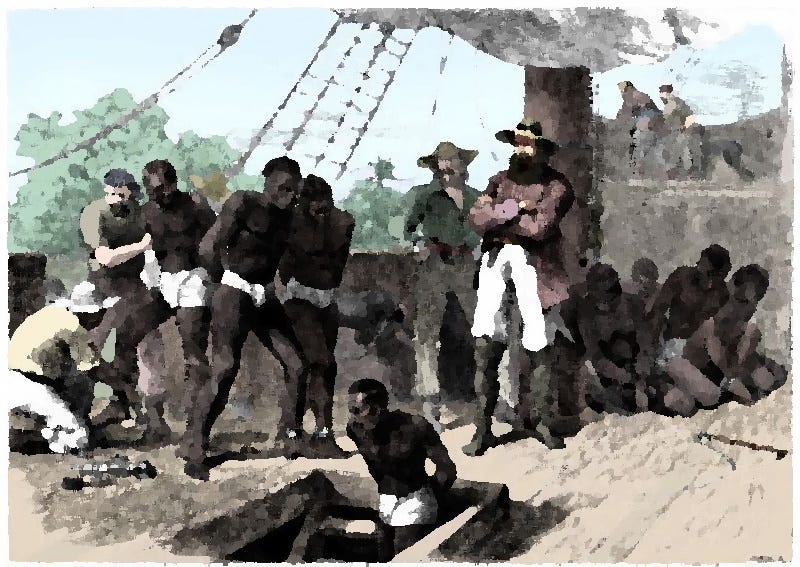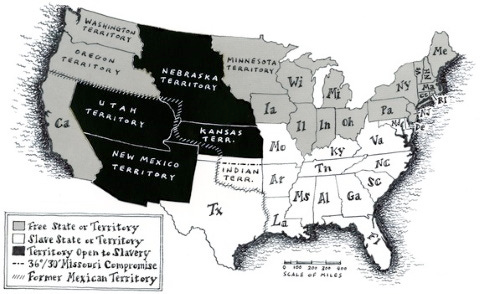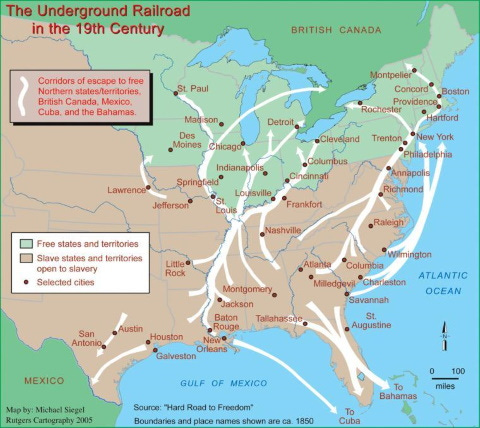Slavery: You're Free Thanks To White People
After the 1619 Project, yet another one-sided examination of slavery, along comes “Harriet,” an American biographical film about the slave-turned-abolitionist Harriet Tubman, released on November 1, 2019. Undoubtedly, Tubman deserves the credit for her work, dedication and sacrifice, but the underlying dynamics are always strategically ignored and misrepresented to foster the undying slave-blame-game.
Reminders about slavery have a politically convenient way of resurfacing every now and again, especially as it relates to America, and myths continue to be kept alive, mostly due to misplaced guilt and the lack of piercing questions driven by the fear of socially unacceptable labels. Certainly, and sadly, Western Europeans engaged in slavery, with 3.5% of African slaves reaching America, while the remainder were sent to the Caribbean and South America. Western Europeans sought and derived economic gain from relatively free labor, although slavery was a misunderstood economic misstep at the time and a burden on society based on a simple economic model, and it will be discussed at a later date.
But the source of slavery is always misstated, and is continuously and erroneously portrayed as a white-on-black crime that now seeks reparations, where whites simply kidnapped blacks off the coast of Africa, chained them, forced them into ships and sailed West. The truth is that sub-Saharan Africans captured and sold other sub-Saharan Africans to Western Europeans, and the collection of reparations, if any, must start in Africa, although they lack the economic power to fund such an ambitious project.
Slavery in historical Africa was practiced in many different forms: Debt slavery, enslavement of war captives, military slavery, and criminal slavery were all practiced in various parts of Africa. Slavery for domestic and court purposes was widespread throughout Africa. Plantation slavery also occurred primarily on the eastern coast of Africa and in parts of West Africa. The importance of domestic [African] plantation slavery increased during the 19th century due to the abolition of the Atlantic slave trade. Many African states dependent on the international slave trade reoriented their economies towards legitimate commerce worked by slave labor.
Fast forward to the Underground Railroad, a “network of secret routes and safe houses established in the United States during the early to mid-1800s, and used by enslaved African-Americans to escape into free states and Canada.” But Harriet Tubman used the network only because white people with a conscience enabled its operation, otherwise she wouldn't even be a footnote on a history book.
Make no mistake about it! Slavery was brutal and horrible, and unfortunately Western civilization participated, but if it wasn’t for white people, slaves would still be slaves today. As an added note, if it wasn’t for economic pressure on South Africa in the 1970s by America and Europe, Apartheid would still be alive, and Mandela would have died in jail, while indigenous people were powerless to end the practice. And as inconvenient as the truth is, the historical and contemporary socio-techno-economic achievement on a global scale demonstrates that Africans wouldn’t have been able to free themselves from slavery.
Plenty of injustices can be found throughout history across all civilizations, and white people must realize that there’s nothing to feel guilty about, and reject the constant villainization imposed upon them. As a matter of fact, white people must be proud that their ancestors were the ones that truly ended slavery, even though Africans kept the practice alive long after America and Europe abolished the slave trade and ownership. "The truth is like poetry..."




